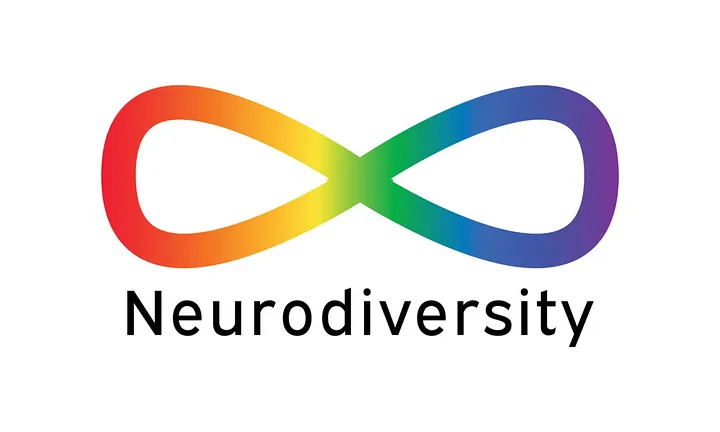We’re all navigating a business climate that feels defined by constant change and reinvention, aren’t we? The companies that are genuinely excelling aren’t just throwing money at new tech; they’re the ones figuring out how to tap into under-recognised human potential. Yet, for all the talk of strategy and digital transformation, there’s a huge pool of talent we consistently overlook: our neurodivergent colleagues.
After spending decades in the trenches, helping organisations make that difficult leap from simply functional to genuinely future-ready, I’ve seen this play out time and again. It’s not just a moral blindspot; it’s a massive strategic error.
Are we missing talent that’s right in front of us?
First, let’s get our thinking straight. Neurodiversity, which includes conditions like autism, ADHD and dyslexia, isn’t some ‘problem’ that needs fixing. It’s simply part of the natural, wonderful variation in how human brains are wired. The real issue is that our corporate systems, for far too long, have been designed around a very narrow and outdated idea of what ‘normal’ looks like.
The statistics here are genuinely shocking. The National Autistic Society reports that a mere 15% of autistic adults are in full-time work. Let’s be clear: that isn’t a talent shortage. It’s a systemic failure on our part to build organisations that can actually see and harness value.
When the sociologist Judy Singer came up with the term ‘neurodiversity’ back in the late 90s, she wasn’t just adding to our lexicon. She was challenging us to see that real innovation doesn’t come from everyone thinking alike. It’s that very idea, that cognitive diversity is a strength, which sits at the heart of any truly inclusive and high-performing organisation today.
The Real Competitive Edge: Turning a Blindspot into a Strength
Across all the sectors I’ve worked in, from bustling hotels to complex automotive plants, one truth kept emerging: the moment you broaden your definition of what ‘good’ talent looks like, you immediately increase your organisation’s capacity for genuine excellence.
Think about individuals with Asperger’s Syndrome. A traditional, rigid interview process might flag them for not picking up on certain social cues, while completely missing their extraordinary attention to detail, systematic thinking, and an ability to focus that is second to none. A US software testing firm, Aspiritech, was smart enough to see this. They didn’t just accommodate these strengths; they built their entire business model around them, resulting in pinpoint operational precision and a powerful competitive advantage.
This is about so much more than fairness, important as that is. It’s about strengthening your innovation pipeline. When you build neurodiverse teams, you are essentially hard-wiring your organisation to resist groupthink. The different ways they approach problems introduce the very perspectives you need to navigate unpredictable markets and become genuinely agile.
So, how do we make this a reality in our workplaces?
Hiring is just the starting line. Real inclusion has to be woven into the fabric of everyday working life. If it isn’t, all your recruitment efforts will be for nothing.
This means taking a hard look at your entire hiring funnel, from the language in your job specs to the structure of your interviews and your onboarding. Are you accidentally filtering out brilliant people? Working with specialised organisations like Evenbreak can connect you with fantastic candidates who traditional methods often screen out. And let’s not forget, there are government-backed tax incentives here in the UK that make this an even smarter financial decision.
Process is one thing, but culture is everything. This is where Employee Resource Groups (ERGs) become so vital. I’ve witnessed firsthand how a well-run ERG can transform a workplace, creating a safe harbour where people find mentorship, advocacy and a genuine community that empowers them instead of leaving them feeling isolated.
And of course, we need to measure what we’re doing. We live in a data-driven world, so track the hard metrics like retention, promotion rates, and engagement scores. But don’t ignore the softer signals like personal stories and direct feedback. The crucial part? You must involve your neurodiverse colleagues in designing these feedback systems. They need to be co-creators of the solutions, not just subjects of a study.
This isn’t a ‘nice-to-have’. It’s a core business strategy.
We’re always talking about the need for innovation, adaptability and resilience. But what if all of those things are simply outcomes of a more fundamental principle? What if they all flow directly from having genuine diversity of thought within your teams?
Embracing neurodiversity isn’t a side project for the HR department; it’s absolutely central to building an organisation that’s ready for the future. It challenges us to lead with more curiosity, to design our processes with real empathy, and to create space for brilliance that might not show up in the ways we’ve been conditioned to expect.
Ultimately, supporting neurodiverse talent isn’t just the right thing to do. It’s the strategically smart thing to do.
Let’s stop letting incredible potential walk out the door simply because it doesn’t fit a preconceived mould. It’s time to build cultures of excellence that don’t just tolerate difference, but actively thrive on it.






